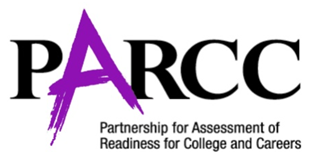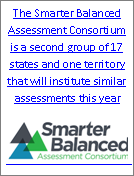- NJASA
- Executive Message - Dec 2014/Jan 2015
-
PARCC – The Challenge Ahead
New Jersey has had state standards since the 1990s in nine subject areas, known as the Core Curriculum Content Standards and is one of forty-six states and the District of Columbia that voluntarily adopted the Common Core State Standards in 2010 and 2011. NJASA supports the establishment of these standards which focus on developing the critical-thinking, problem-solving, and analytical skills students will need to be successful. NJASA joined with the NJ Department of Education and other major state education
 organizations to inform parents about
New Jersey’s history of setting academic standards for student achievement and
the value that these new standards bring for our students. We see a growing understanding and acceptance
of these standards as our members address the issues raised in our communities about
their use to guide curriculum development and instruction.
organizations to inform parents about
New Jersey’s history of setting academic standards for student achievement and
the value that these new standards bring for our students. We see a growing understanding and acceptance
of these standards as our members address the issues raised in our communities about
their use to guide curriculum development and instruction. As we turn the corner in developing understanding of and support for the Common Core, we see another speed bump in the road: parent apprehension about the new assessments to be used by New Jersey, eleven
 other states and the District
of Columbia to assess students’ command of the Common Core State Standards. The Partnership for Assessment of Readiness
for College and Careers is a consortium of states which worked together to
develop K-12 assessments in English and math, commonly called PARCC assessments.
Parents are questioning much about the
use of the PARCC assessments which are beginning soon for students in high
schools with block
other states and the District
of Columbia to assess students’ command of the Common Core State Standards. The Partnership for Assessment of Readiness
for College and Careers is a consortium of states which worked together to
develop K-12 assessments in English and math, commonly called PARCC assessments.
Parents are questioning much about the
use of the PARCC assessments which are beginning soon for students in high
schools with block  schedules and for all students beginning in March. Among their concerns are the length of tests,
the loss of instructional time, the dependability of technology tools and
systems, the use of results, and the privacy of student information. These are all issues that must be addressed
as we speak with our community members. NJASA is once again joining with the NJ Department of Education and
other state education organizations to speak to these issues, but more
importantly, to talk about the value of these new technology-based assessments
for students.
schedules and for all students beginning in March. Among their concerns are the length of tests,
the loss of instructional time, the dependability of technology tools and
systems, the use of results, and the privacy of student information. These are all issues that must be addressed
as we speak with our community members. NJASA is once again joining with the NJ Department of Education and
other state education organizations to speak to these issues, but more
importantly, to talk about the value of these new technology-based assessments
for students.PARCC recently released a document titled: “PARCC Field Test, Lessons Learned” which reports key findings learned from the field testing conducted last spring as well as planned improvements for this year’s assessments. Dr. Bari Erlichson, Assistant Commissioner, wrote to Chief Education Officers on December 2nd highlighting a few topics from the report:
“For those of you who have expressed interest in how a test question becomes a test question, please read through the life cycle of a test item, page 6. At every step of the process, educators from across the PARCC states are participating in reviewing items, reviewing data from the field testing, and making decisions about next steps. Approximately 89% of the math items and 78% of the English language arts (ELA) items were approved from our field tests to be made part of the operational assessment this spring.
Responses from the student surveys administered at the end of the field test begin on page 8. Highlights include:
· 94% of students either finished the CBT ELA field test very early or on time and 87% did so for mathematics (p. 9).
· Approximately 90% of the students in the PARCC CBT understood the directions read by test administrators (p. 10).
· Students found the mathematics assessment more challenging than the ELA assessments overall regardless of whether the student took the field test via computer or paper (p. 11).
· Approximately 90% of students who participated in the ELA CBT and 65% of students who participated in the mathematics CBT reported that it was easy to type their answers (p. 15).
In terms of technology preparation, only 60% of test coordinators and administrators used proctor caching during the field test. Based on New Jersey’s field test experience and the ability for proctor caching to reduce or even eliminate difficulties related to bandwidth, it is highly recommended that all schools utilize proctor-caching software (p. 17).”
Dr. Erlichson also noted that the PARCC consortium was implementing actions addressing issues identified in the field testing and that the NJ Department of Education will host regional training sessions for test and tech coordinators to review administration manuals beginning in January.
Educators understand that there is an ongoing need for information and conversation with community residents about PARCC. We believe that parents and educators need to know how our students fare in achieving higher standards. We believe that we must work together to prepare students for the world that awaits them outside our doors. NJASA members will lead the discussion about assessment as an essential component of the teaching-learning process and speak candidly and directly about the planned PARCC assessments. Together we shall work through the challenges, learn from our experiences, and elevate student achievement.



